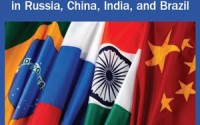What can the Slam on Chinese Philanthropist Couple Tell us about Chinese Philanthropy
It’s widely known that the amount of giving by Chinese wealthy doesn’t match the scale of their wealth, compared with their western peers. Meanwhile, Chinese philanthropists haven’t made much appearance on the stage of global philanthropy. So you would probably think the couple’s large gift would be warmly applauded in China. However, the couple have been faced with criticism among many Chinese. The criticism falls into two categories: motivation and effectiveness.
One major question people asked around the gift is on motivation – “Why Harvard? It is already one of the richest university in the world. “ Zhang Xin explained in an interview with Wall Street Journal that many top-tier U.S. colleges recruit mainland Chinese students from a pool of candidates already in America attending high schools, sent there by their wealthy parents. They want to open doors for underprivileged but talented students to world-class education. Some Chinese don’t seem to buy this story and come up with various speculations, such as, “They probably want to pave ways for their son to enter Harvard.” or “Maybe they want to build an overseas talent pipeline for SoHo China.” or “This must be part of SoHo China’s global expansion strategy.” I should say these thoughts are pretty much ungrounded, because for whatever purpose as speculated, the couple could have better options than donating $15 millions to Harvard. Philanthropy is still at its nascent stage in China, and many people still haven’t got their heads around that motivation behind charitable giving could have nothing to do with material return.
The other line of question is “Why don’t they give to universities in China? Aren’t poor students in China in greater needs than those who want to study abroad? Some people say “They have made their money in China, so they should keep their giving in their home country. There are plenty of good institutions in China which can use the money” Putting cynical nationalistic emotions aside, Raymond Zhou from China Daily seems to represent the more “rational” among those who have participated in this discussion. He quotes two old Chinese saying on giving, “adding flowers to a big bouquet” vs “sending charcoal to someone trapped in snow”. He considers Pan and Zhang’s giving as the former, but traditional Chinese mentality considers “You get more bang for your buck if you do the latter.” He further explained,
The problem with charity recipients is not their nationality, but rather which is in dire need of such help. Harvard may have a much larger budget than Tsinghua, which, in turn, is much better funded than a regular college in China. The ones most worthy of such financial assistance, as the logic goes, are those in poverty-stricken areas that cater to the lowest-income families.
To me, this “logic” raises some important questions – Who is in the position to decide what need is greater and what recipient is more worthy of financial assistance? How can you determine whether you’ve “got more bang for your buck”?
These questions, together with the criticism described earlier in this article, in my opinion, reflect accurately the two challenges of moving Chinese philanthropy forward to the next level.
One challenge is for people to understand and respect the idea that philanthropy is closely connected with personal values. Right now, people in China tend to make judgment on charitable giving on whether it conforms to societal expectations, and whether it satisfy some urgent need. This mentality is deeply rooted in our traditional culture and long-time authoritative system, where collective values are encouraged. Examples of common collective values are putting the country and others ahead of oneself, obedience and conformity, loyalty and filial duty, keeping a low-profile and acting in a reserved manner. I’m not saying collective values are wrong. In fact, these values shape us as a nation. But it becomes a problem if people use these collective values as yardstick to judge whether a charitable giving is “right” or “wrong”. When it comes to philanthropy, I am a strong believer that philanthropy is an expression of personal values and philanthropists can gain maximum momentum when they are able to connect their values, passions with their philanthropy. We could kill the fledgling private philanthropy in China if we keep making harsh judgment on the charitable giving without respecting the personal values and passions of the philanthropists.
The other challenge is to redefine effectiveness and impact. Again, this is related to our long history of agricultural economy and family and community oriented culture. Pursuing immediate result and helping those in urgent need are considered more practical and important. In many cases, people can be easily satisfied as long as “some good is done” or “some urgent need is met”. People don’t always ask questions on long-term impact, effectiveness or efficiency. I think building rigorous evaluation capacity in the social sector is key to overcoming this challenge, which will make it more effective to demonstrate effectiveness and communicate impact.
Back to the discussion on Pan and Zhang’s donation, I think we would have missed the point if we linger on questioning their motivation. Both of them come from a very humble background. Pan studied very hard to get himself out of the little village in remote northwestern China, and Zhang has been enormously benefited from scholarships at the University of Sussex and Cambridge University in UK. It wouldn’t be hard to see where their motivation comes from. While I totally applaud their heroic act, I believe some more important questions should be asked. What is their ultimate goal? Is this giving to Harvard the most effective way to achieve their goal? How will they measure the success of the scholarship?
Thinking about these questions reminded me of an interview I had with Leslie Pine, Senior Partner at TPI, a couple of years ago. At TPI, they have designed and implemented several very successful scholarship and college success programs on behalf of different funders. These programs are designed to incorporate research and knowledge of what young people need to persist in college and prepare for productive careers and lives. Besides funds for tuition, books, and academic enrichment, students also are matched with mentors or advisors, who provide ongoing support to help students deal with anxiety, academic problems, financial issues and other challenges that can arise during college. Students also participate in social events and networking opportunities. In addition to focusing on academic achievement, these supports focus on the students’ social psychological wellbeing, since this plays an important role in improving students’ academic performance and overall success. We have heard so many tragedy incidents around academically excellent Chinese students getting depressed, committing suicides, or killing others after they finally make it into a top-totch American university. Maybe these are equally important questions that should be considered.
[break]
[break]



